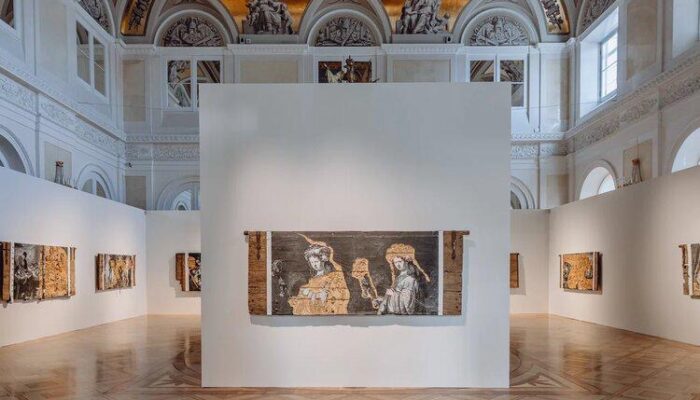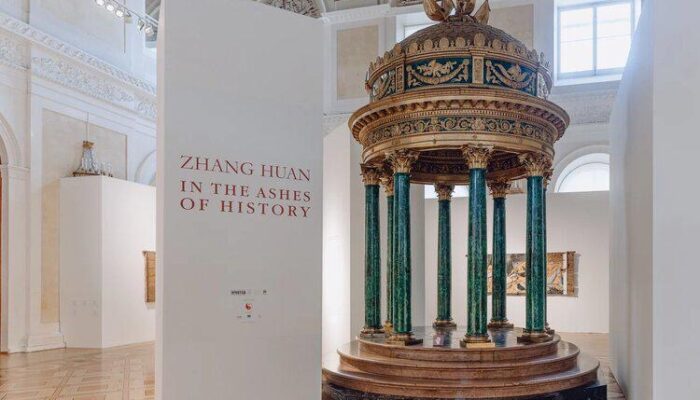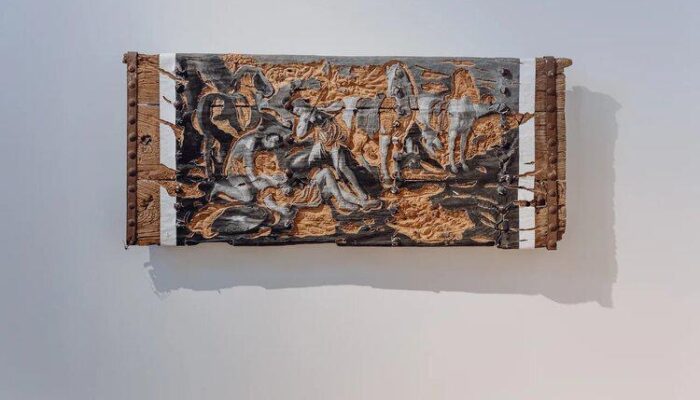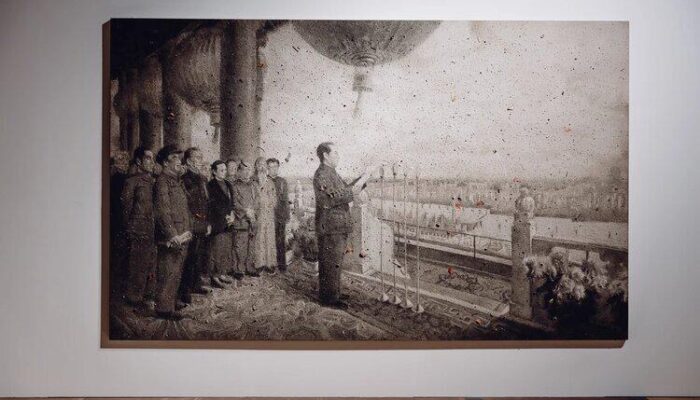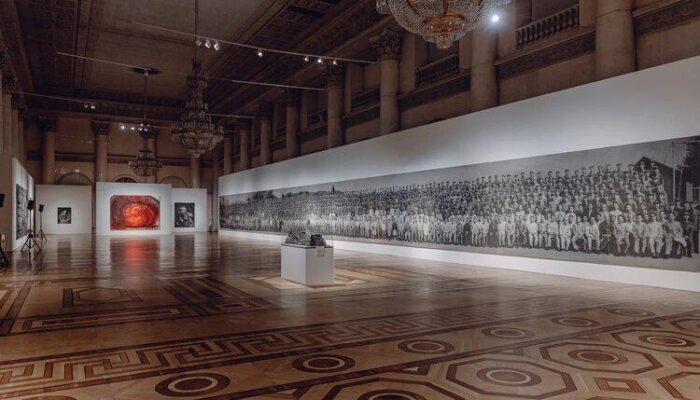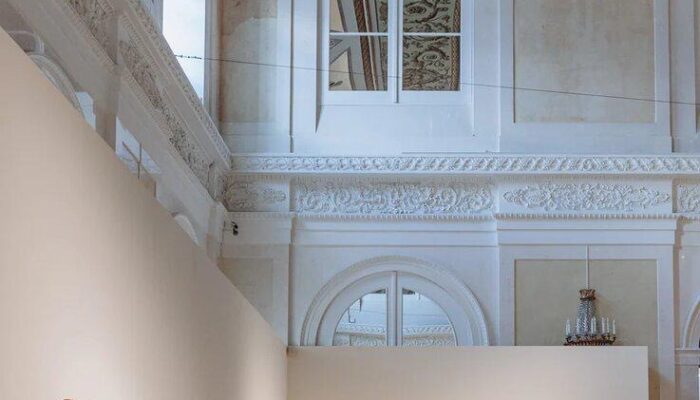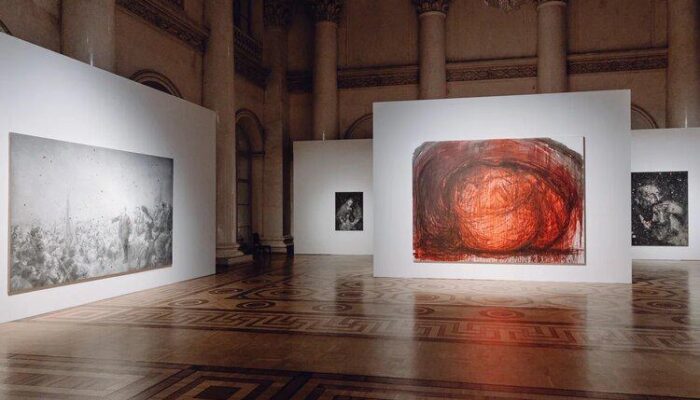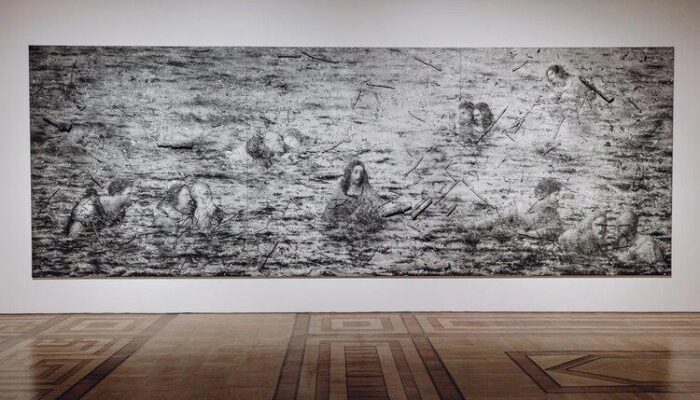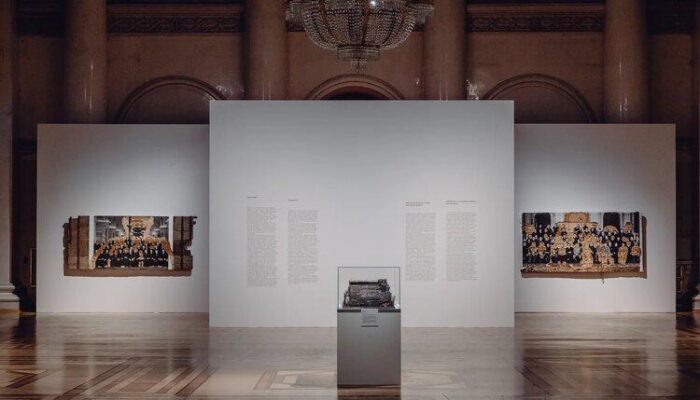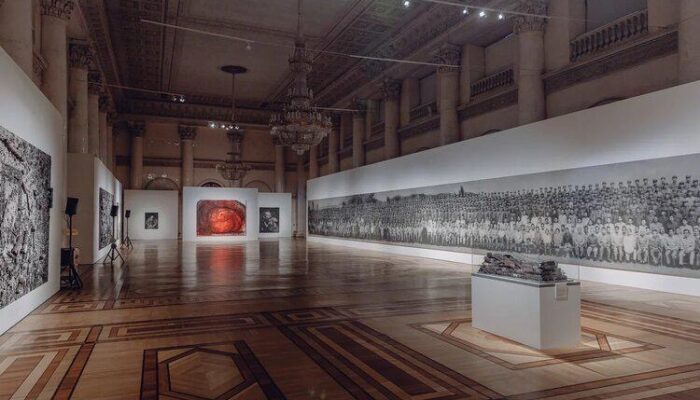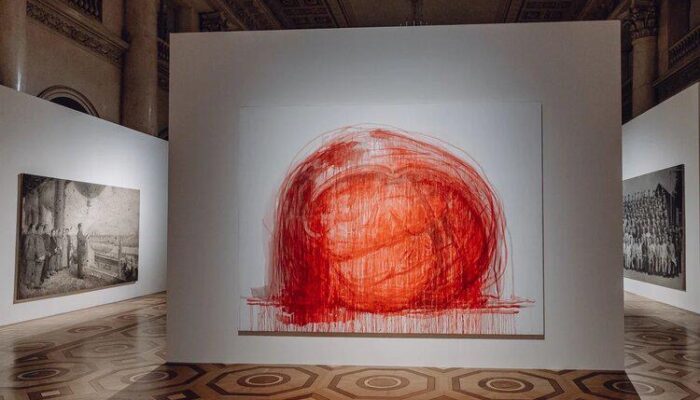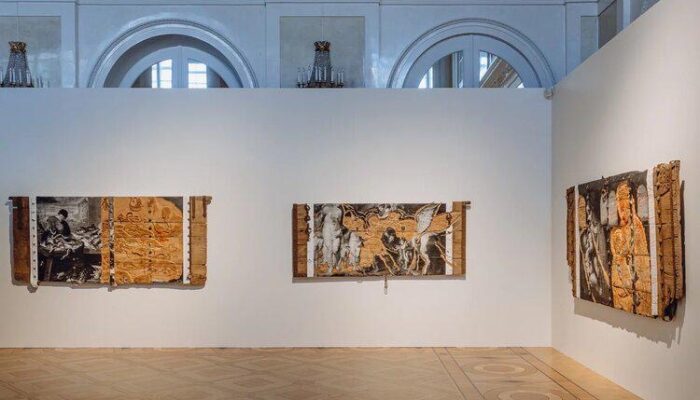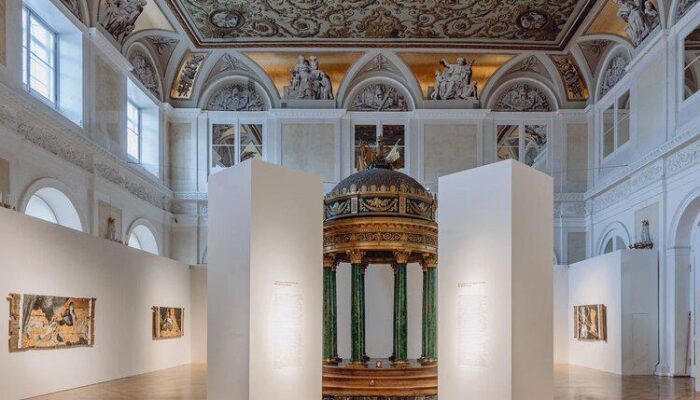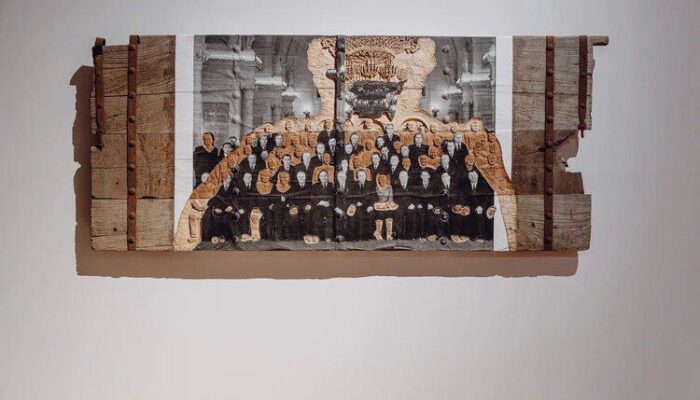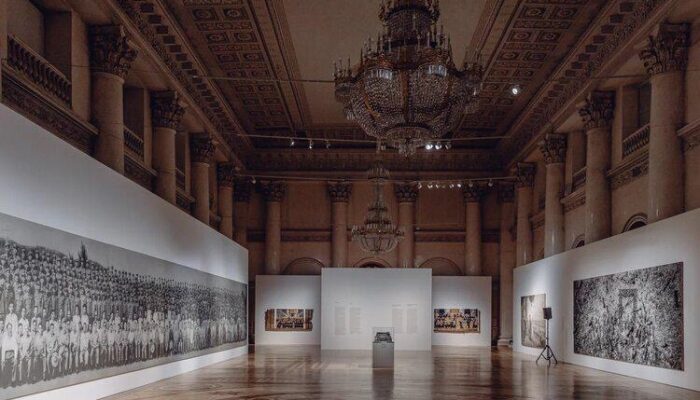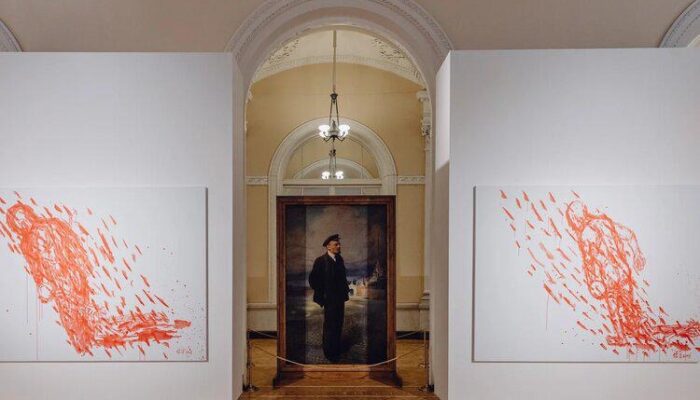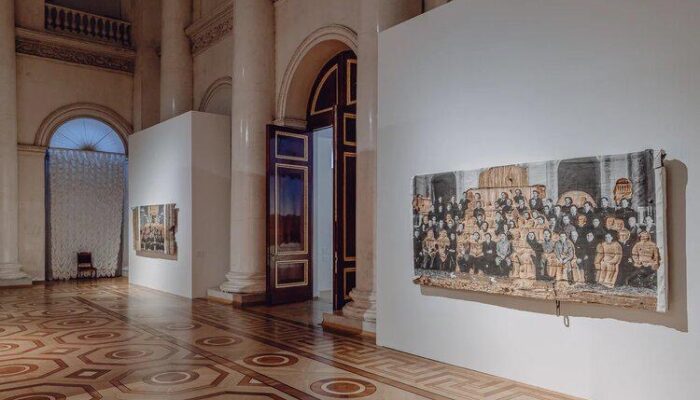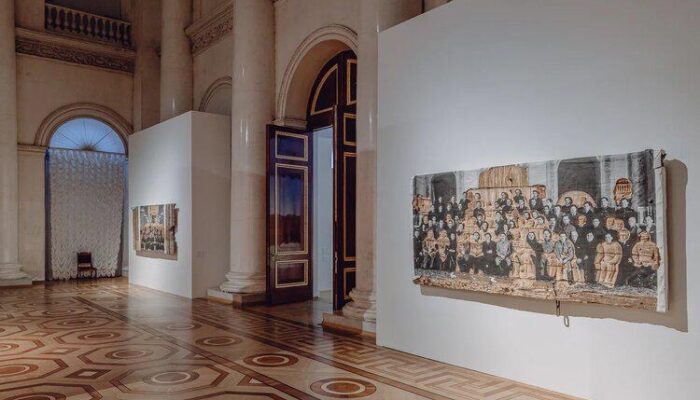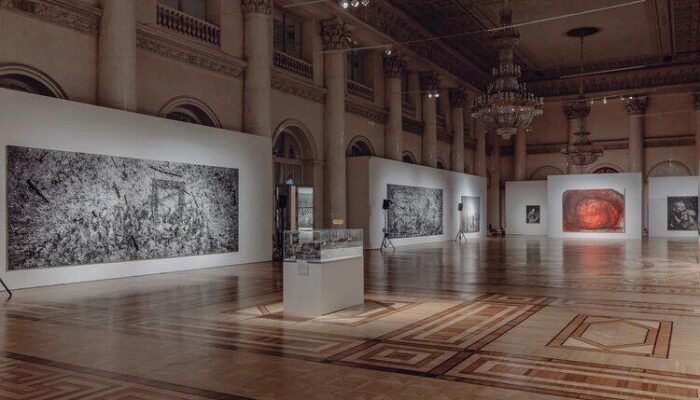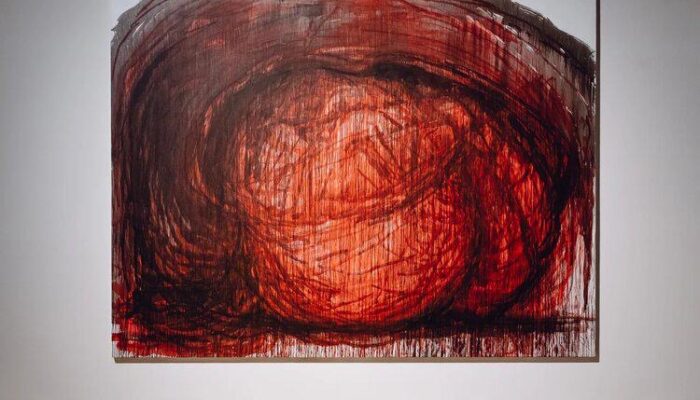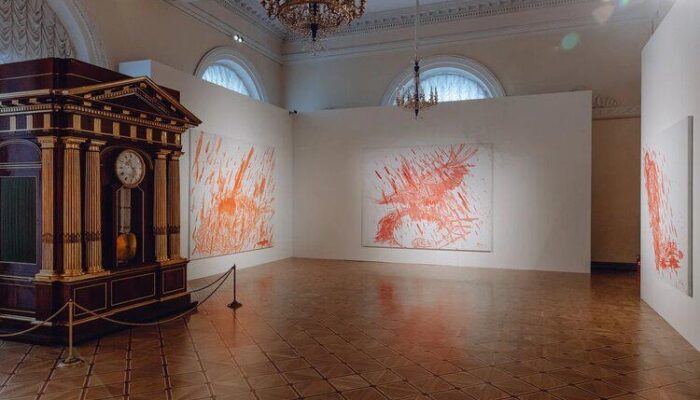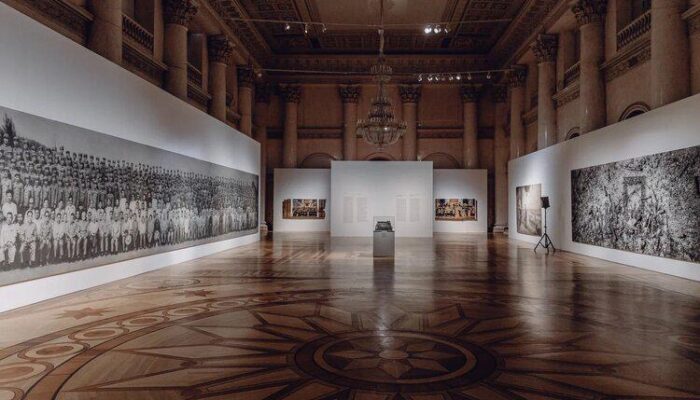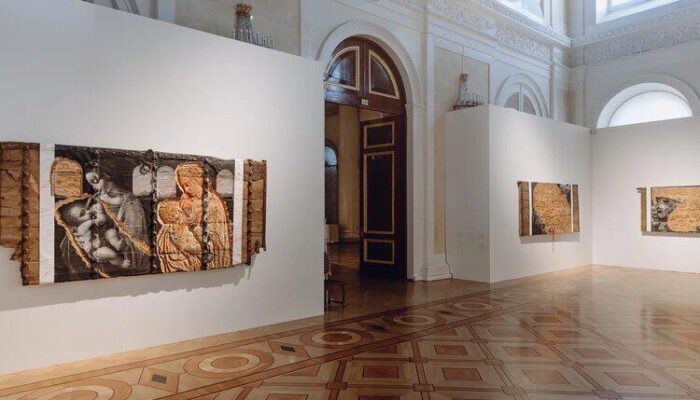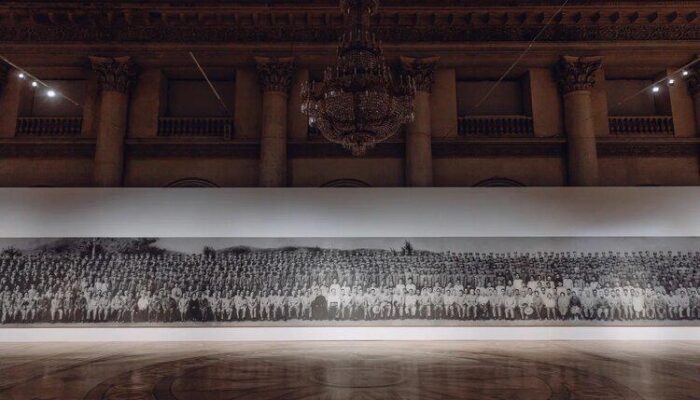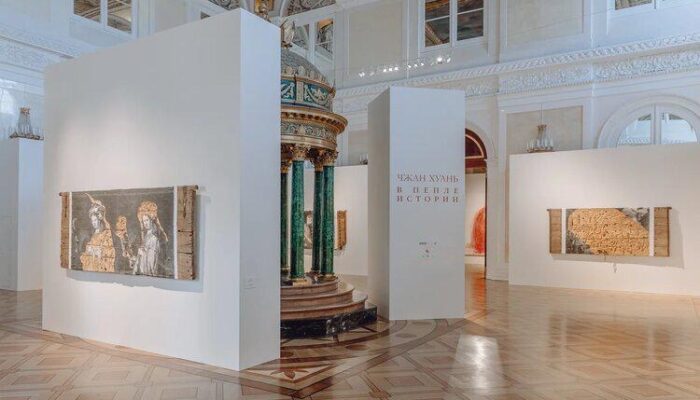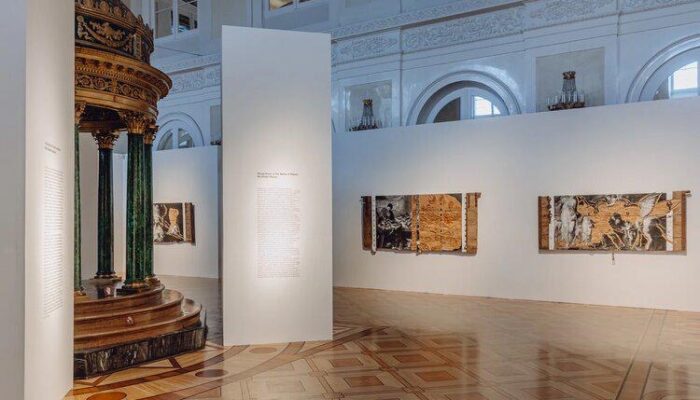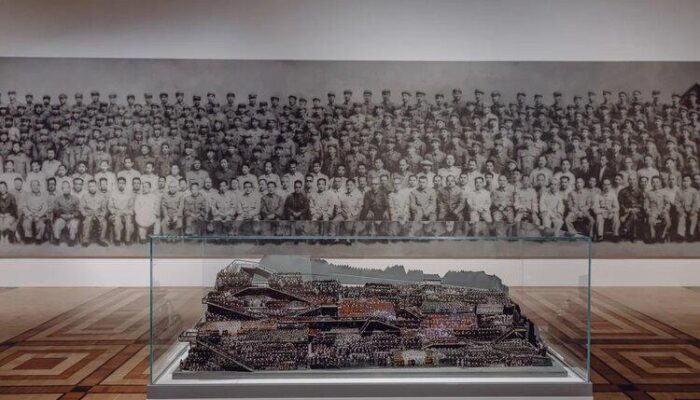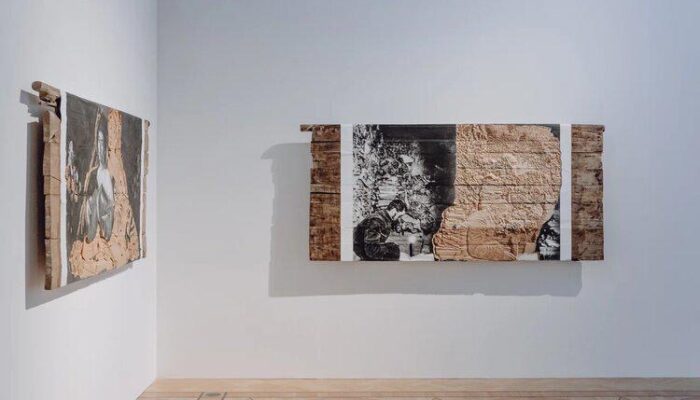After nearly two years of curation and preparation, “Zhang Huan. In the Ashes of History” solo exhibition was finally unveiled in the Nicholas Hall of the Hermitage Museum in St. Petersburg and now is officially open to the public. Thank you very much all my friends who have sponsored and supported the exhibition.
Image: Courtesy of Pearl Lam Galleries and Zhang Huan Studio, Photo by Alexander Murashkin.
Pearl Lam Galleries is proud to support the exhibition Zhang Huan. In the Ashes of History, co-curated by Dimitri Ozerkov, Anastasia Veialko, and Wu Hung. The exhibition celebrates Zhang Huan as the first Chinese contemporary artist to open a solo exhibition at the State Hermitage Museum in St. Petersburg — one of the most prestigious museums in the world. The show highlights Zhang Huan’s consistent use of unconventional materials and techniques through works that convey his aesthetic judgment and social critique. The exhibition features more than 30 works from four different series: Ash Paintings, Memory Doors, Love /Reincarnation series and the installation of the Hermitage Buddha. Zhang Huan created My Winter Palace consisting of new works inspired by the artist’s first visit to the Hermitage. The exhibition will be on view at Nicholas Hall of the Winter Palace.
Demonstrating the fraternal kinship between Russia and China, Zhang has exploited materials such as ash and wooden doors to depict memories of historical figures and events. In particular, Zhang’s Memory Doors from My Winter Palace series were inspired by and specially created for the Hermitage. Zhang was deeply moved by the Russian pavilion curated by the Hermitage at the Venice Biennale in 2019. The shown installation by Alexander Sokurov (b. 1951) and Alexander Shishkin-Hokusai (b. 1969) inspired the artist to explore the idea of the “Russian ark” and how the museum’s collection becomes a treasury of memories. The title of this new series, My Winter Palace, pays tribute to the Hermitage collection and art masters who have greatly influenced the artist. The exhibition features thirteen of these wood bas-reliefs, carved with silk-screen printed photograph motifs of Hermitage paintings.
On view is 15 June, 1964 (2008–12), a 37-metre-long ash painting of the Communist Party of the People’s Republic of China that almost fills the entire length of the Nicholas Hall. The inspiration behind this painting derives from an old photograph Zhang encountered at a Beijing street market in the early 1990s. The work is painted with incense ash collected from Buddhist temples. Kilos of these ashes are transported to the artist’s studio and sorted manually into 20 different tones or shades. The ash creates a sense of historical authenticity and transcends its material properties to become a symbol of the collective memories, wishes, and prayers of the Chinese people. This unusual material resonates with the artist’s deep connection to the philosophy of Pratitya in Buddhism.
Originally intended as a continuation of his Reincarnation series, Zhang redefined two groups of recently created works as the Love series in response to the COVID-19 pandemic, capturing the uncontrollable nature of the virus and its impact on the routines of society. The Love series, created during home-quarantine, marks Zhang Huan’s return to painting with brushes and paint. The first eight works are titled Reincarnation, referencing the Buddhist concept that death is not a conclusion but a natural part of the life cycle. The additional two works titled Love are a distillation of the artist’s personal experiences regarding the pandemic in China and around the world. It reflects the uncertainty felt globally, as the unnerving reality encourages us to slow down and consider introspection. It is a way of “returning to the essence of life”, as described by the artist.
Works from the Hermitage Buddha series follow Zhang’s previous installations Three Heads Six Arms and The Six Paths of Transmigration. With extending body parts, the sculpture encapsulates the inflated ego of humanity. The monstrous figure signifies the duality of the man-made and the natural. It also addresses unresolved conflicts between countries and their people.
The exhibition Zhang Huan. In the Ashes of History is organized by the Department of Contemporary Art as part of the Hermitage 20/21 project, with the support of DC Foundation – Diana Chen, Dr. Junning Lee and Mrs. Xiaojun Lee, Julia Zhen, and the Asymmetry Art Foundation, China Art Foundation and Pearl Lam Galleries.
About the Artist
Zhang Huan was born in in 1965 in a small town called Anyang in Henan Province. He graduated from the Henan Academy of Fine Arts in Kaifeng in 1988. In the early years, Zhang began his career as a painter inspired by Rembrandt van Rijn and Jean-François Millet upon obtaining extensive academic training. In 1993, Zhang graduated with an MA from the Central Academy of Fine Arts in Beijing. Around this time, he started creating performance works that tested his physical and mental endurance. He continued to produce paintings and further mastered the art of photography and sculpture. His time spent living and working in the United States from 1998 to 2005 hugely influenced his artistic career. Currently, Zhang Huan lives and works in Shanghai and New York.
Adapting abstraction and minimalism within the parameters of Buddhism and Chinese culture, Zhang continuously strives to give renewed resonance to modernist techniques while retaining his identity as a Chinese artist. His work involves various subject matters, including religion, family, politics, culture, poverty, and famine. The broad range of materials and tools used in his art practices explains the sense of synthesis, even decorativeness, that can be found in Zhang’s art.
About Hermitage 20/21
Hermitage 20/21 is a State Hermitage Museum project established in 2007 for the study and exhibition of contemporary art from all over the world, and from which the museum’s collection of contemporary art is being formed. In terms of exhibitions, the project focuses on five main aspects: solo exhibitions of acknowledged stars of contemporary art, group exhibitions of young artists from various countries, architecture exhibitions, exhibitions of photography, and the project entitled Sculpture in the Great Courtyard of the Winter Palace. As part of the Hermitage 20/21 educational programme, there are meetings with artists and curators, round-table discussions, masterclasses, and artist competitions. To date, around 40 exhibitions have resulted from the project.
